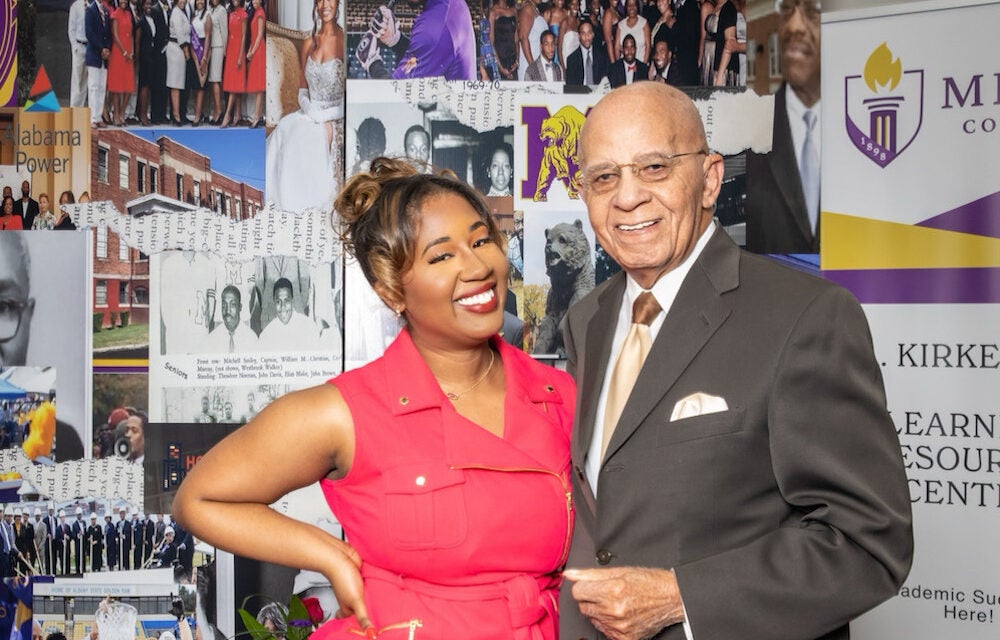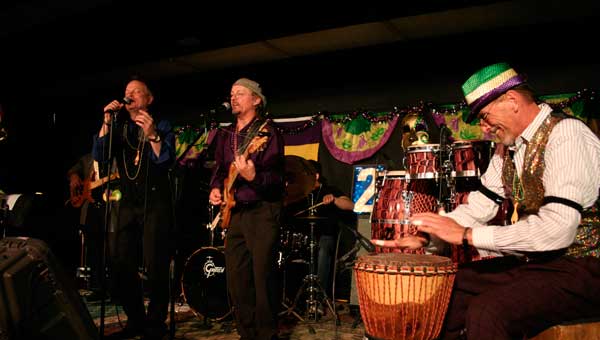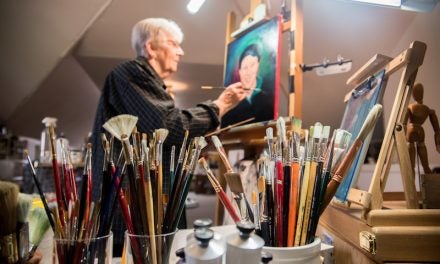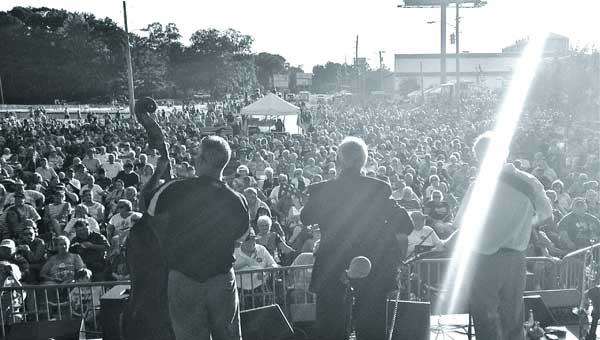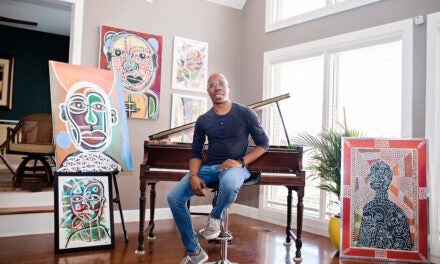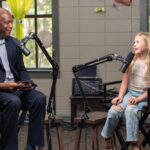By Anna Grace Moore
Photos by The Plus Experience, Kamdid Kamera Photography & Contributed
Just as sunshine may never be appreciated without cloudy days, one may never fathom the depth of love until she has experienced grieving the loss of a loved one. At only age 4, Shelby County resident and author Hailey Mason was sleeping inside her home peacefully when an unknown assailant shot and killed her mother on their doorstep.
Hailey’s mother, Tinisha Malone, was only 25 years old when she was killed. It has been 19 years since her death, and no arrests have been made in solving her murder.
Hailey says this cold case is almost as old as she is. Although it is infuriating that Tinisha has not received justice, Hailey vows to keep her mother’s memory alive by honoring heroes of color like her.
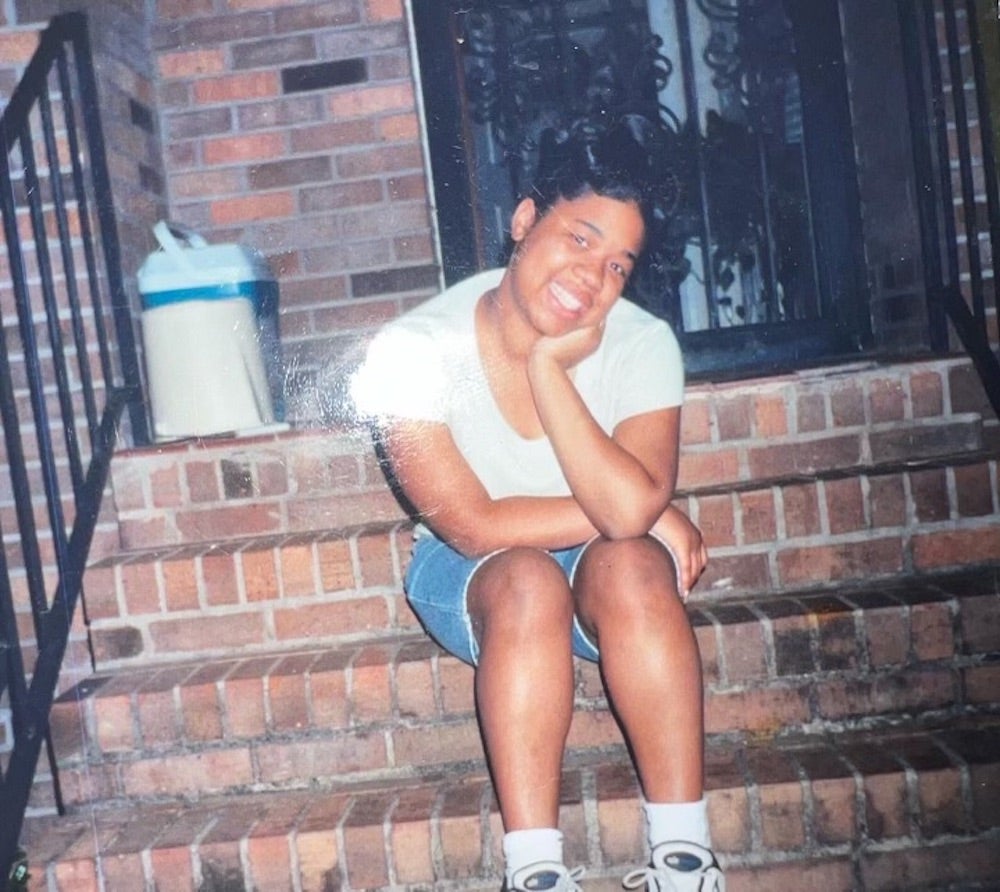
Tinisha was working as an instructional aide at a local elementary school before she passed, teaching a love of learning not only in her students’ hearts, but also in her own children’s hearts, too. Hailey says it was her mother who first instilled in her a fondness for reading and storytelling–a talent she has cultivated throughout her life.
After graduating from John Carroll Catholic High School, Hailey attended Georgia State University for a year before transferring to the University of Alabama at Birmingham (UAB). Hailey says she waited nearly her whole childhood to “get out of Birmingham” because she hated living so close to where her mother’s life was so brutally taken away.
UAB offered her a great scholarship, and reluctantly, Hailey accepted and moved back home. Although she started out majoring in English, Hailey graduated with her bachelor’s in journalism and a double minor in both marketing and African American studies.
While moving back home was difficult, Hailey says she learned to see her transition as an opportunity to tell her mother’s story.
“I am a reflection of my mom,” Hailey says. “Coming back to Birmingham felt like justice for my mom and allowed me to continue the work she wasn’t able to carry out because of her early demise.”
Hailey’s first job out of college was at Alabama Goodwill, where she actually organized the first Black History Month program at the location where she worked. While promoting the program, Hailey learned Dr. Richard Arrington Jr., the city of Birmingham’s first African American mayor, was also Alabama Goodwill’s first-ever African American board member.
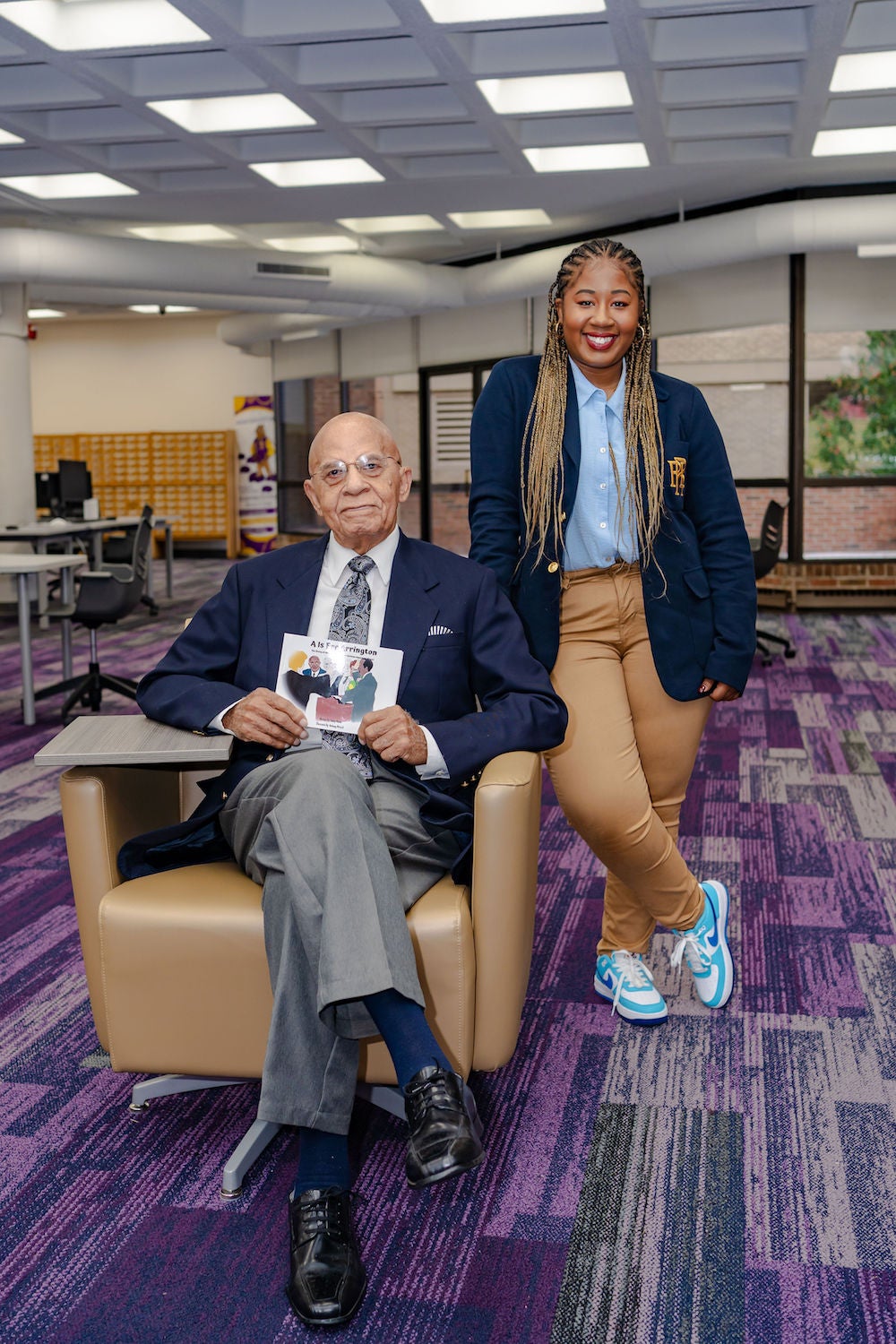
This sparked an interest in her to learn more about Birmingham’s history. Monikers such as “bombingham” have long stained the city red.
Civil Rights activists even put off marching in Birmingham for some time before Dr. Martin Luther King Jr. decided to bring the movement here. The more Hailey read about just how long it took for Birmingham to desegregate, the more impressed she became, learning about the rise of Dr. Arrington–who was elected as Birmingham’s mayor in 1979 and served for four terms (a total of 20 years in office).
According to alaafricanamerican.com, Dr. Arrington was born to sharecroppers Richard and Mary Ernestine Arrington on Oct. 19, 1934. He lived in Livingston, Alabama, before moving to Fairfield–where he graduated with honors from Fairfield Industrial High School at just 16 years old. Dr. Arrington went on to attend Miles College, where he earned his bachelor’s in biology.
Dr. Arrington did not stop there, however. He earned his master’s in biology from the University of Detroit; his Ph.D in zoology from the University of Oklahoma; and he completed postdoctoral work in higher education administration at Harvard University and the University of Michigan.
With a love for learning, Dr. Arrington worked hard to become a National Science Foundation Research Fellow at the Medical College of the State University of Iowa and Washington University. Since then, he has received honorary doctoral degrees from eight different universities.
Just one year after President Johnson signed the Voting Act of 1965, Dr. Arrington returned to his grassroots at Miles College, where he served as the Chairman of the Science Department and Academic Dean until 1970. Then for the next nine years, he served as the Executive Director of the Alabama Center for Higher Education–the entity embodying the four-year, Alabama-based, Historically Black colleges or universities.
Dr. Arrington’s pursuit of higher education and his dream to make such attainable for people of color in lower-income communities is really inspiring, Hailey says.
In 1971, Dr. Arrington set his sights on political change and was elected to the Birmingham City Council. He served two four-year-terms before running and becoming elected as mayor for the first time in 1979.
Dr. Arrington’s reputation long precedes him, but Hailey says she realized younger generations are not learning enough about him–more specifically, the opportunities he created for people of color. Thus, Hailey’s second book and her first children’s book, “A is for Arrington: The Story of Birmingham’s First African American Mayor,” was created.
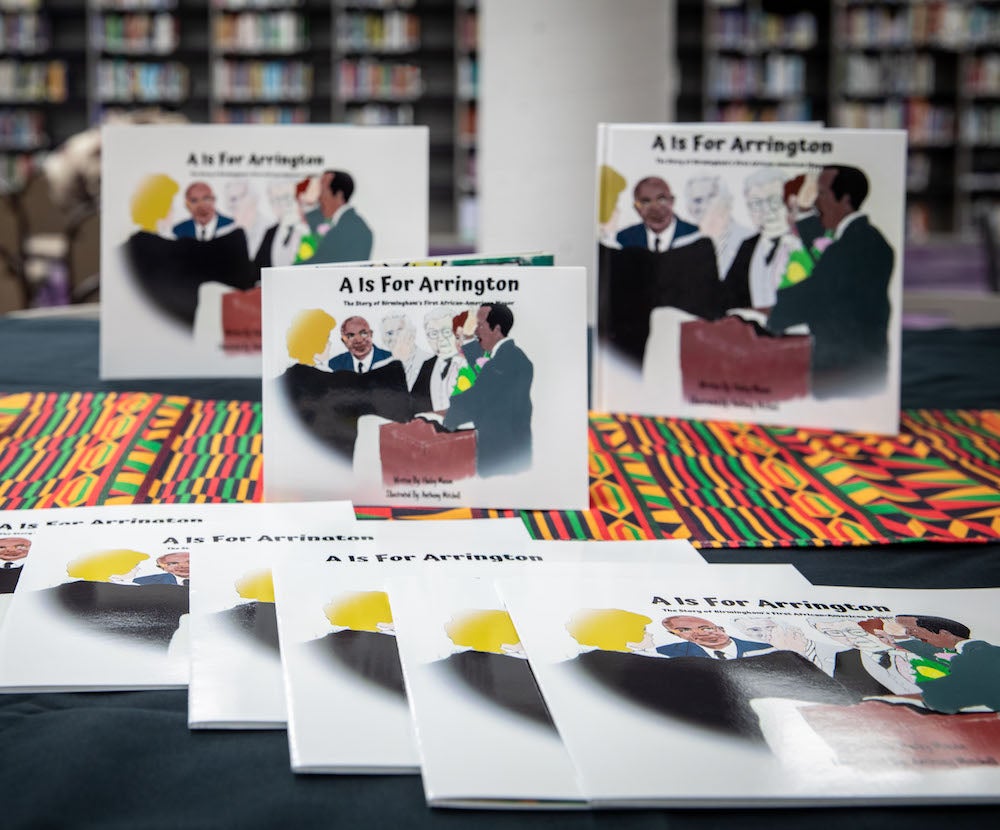
“I’m writing stories that curate black history, which I think is important especially with some [state governments] taking Critical race theory out of school curriculums,” Hailey says. “I felt as a young African American storyteller myself, it was important for me to tell the stories of people who look like me.”
“A is for Arrington” chronicles the life of Dr. Arrington and his contributions to the city of Birmingham and beyond. This book is the first in a series of 26 children’s books that Hailey plans to publish–each one signifying African American heroes. Each book title will honor a person of color whose name is attributed to a specific letter of the alphabet.
In March 2023, Hailey had the privilege of interviewing Dr. Arrington, who after receiving her email, contacted her within 24 hours for their initial meeting. He invited her over to his house and spent the afternoon not only talking about his life, but also getting to know Hailey.
“I developed a personal relationship with him,” Hailey says. “I love him a lot. He’s become like a grandfather to me.”
Hailey says it took her a while to create the first manuscript for “A is for Arrington” because of how many accomplishments Dr. Arrington amassed over his career.
“What an honor it is to have this young author share significant moments from my life with the next generation,” Dr. Arrington says. “In my opinion, every child has the ability to dream big and accomplish their goals. I hope the young readers will be motivated to make a difference in their communities, just as my character in the book.”
Hailey believes that by telling Dr. Arrington’s story, younger generations will be inspired to be the change they want to see in their communities. In today’s society, so many young people get caught up in social media, believing the grass is greener on the other side, Hailey says.
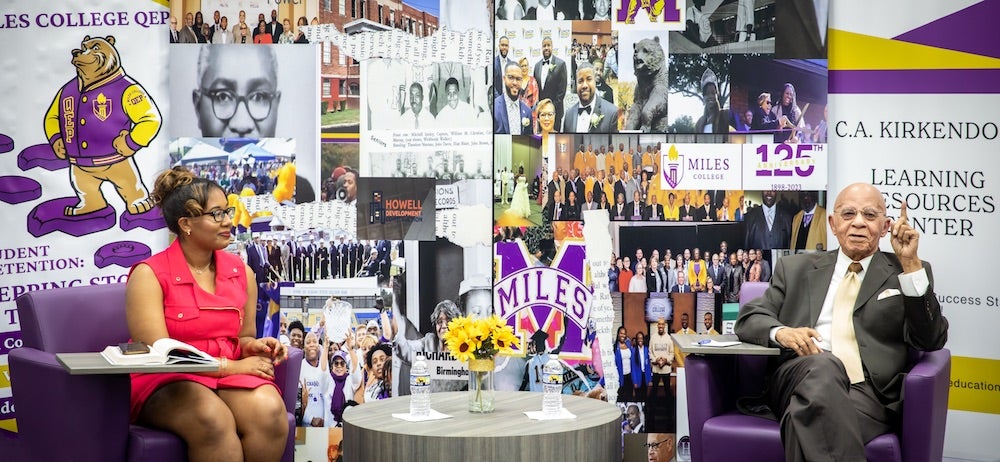
What one sees on social media is not reality. Reality is that not everyone gets played a fair hand, but what one does with the cards she is dealt will define her.
“Your aspirations are the keys to your future, and I’m living proof that you can overcome any hurdle with tenacity and hard diligence to achieve extraordinary things,” Dr. Arrington says.
While she may never obtain justice for her mother, Hailey says she will always tell heroes’ stories that do not need to be forgotten. In her short time on Earth, Tinisha inspired students of color to love learning and challenged them to think outside the box–helping them to believe they were more than the stereotypes often afflicted onto them.
Dr. Arrington worked hard for every degree he earned–returning to his roots and pouring back into the community that helped raise him. No matter what hand they were dealt, they made the best of it and positively shaped the community around them, Hailey says.
Hailey hopes voicing important stories will diversify who the general public sees as heroes or trailblazers, and more importantly, she hopes young readers will believe in their innate abilities to model the character they read about in their heroes’ stories.
If good storytelling is the mouthpiece of truth, reading is the best weapon trailblazers can wield.

